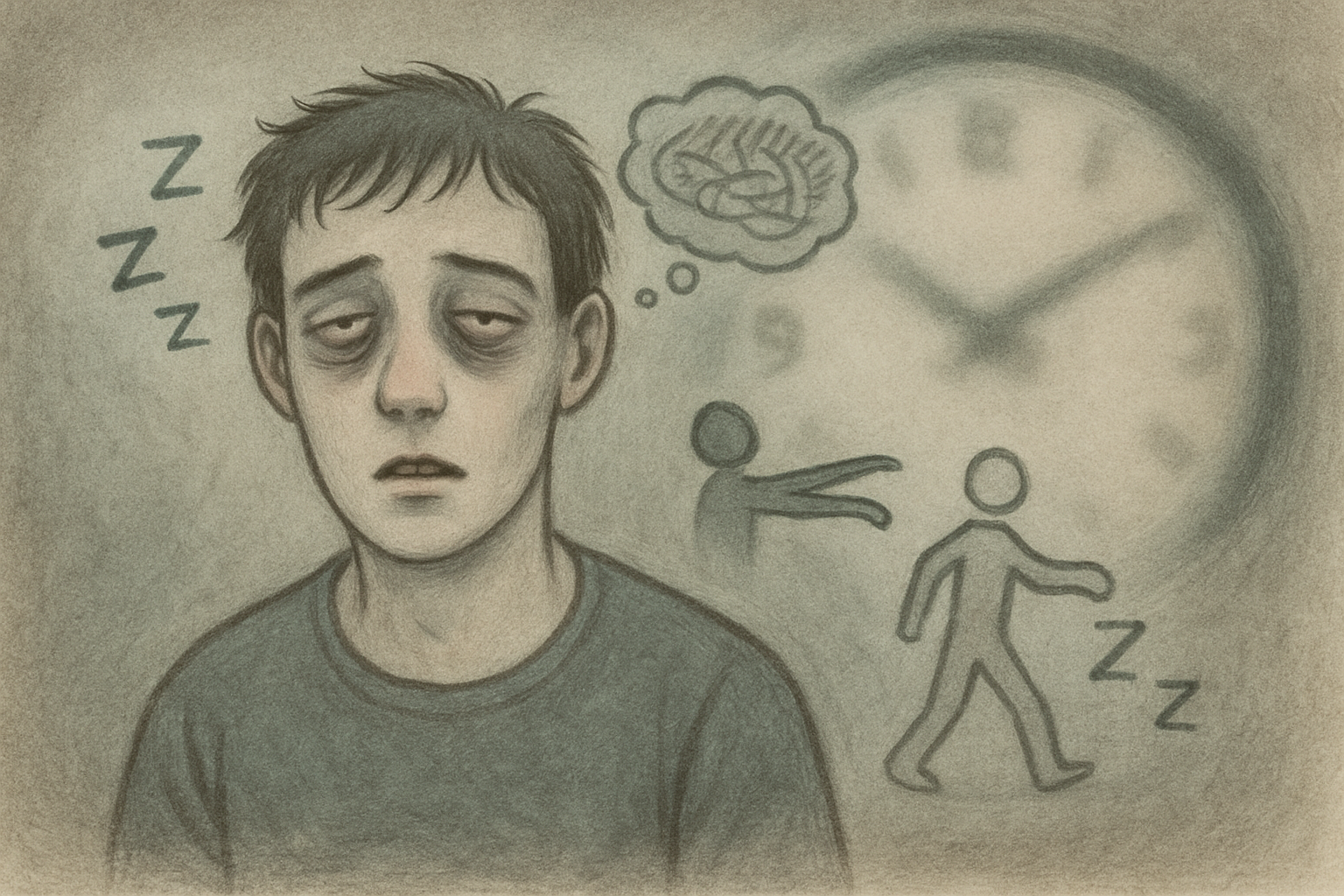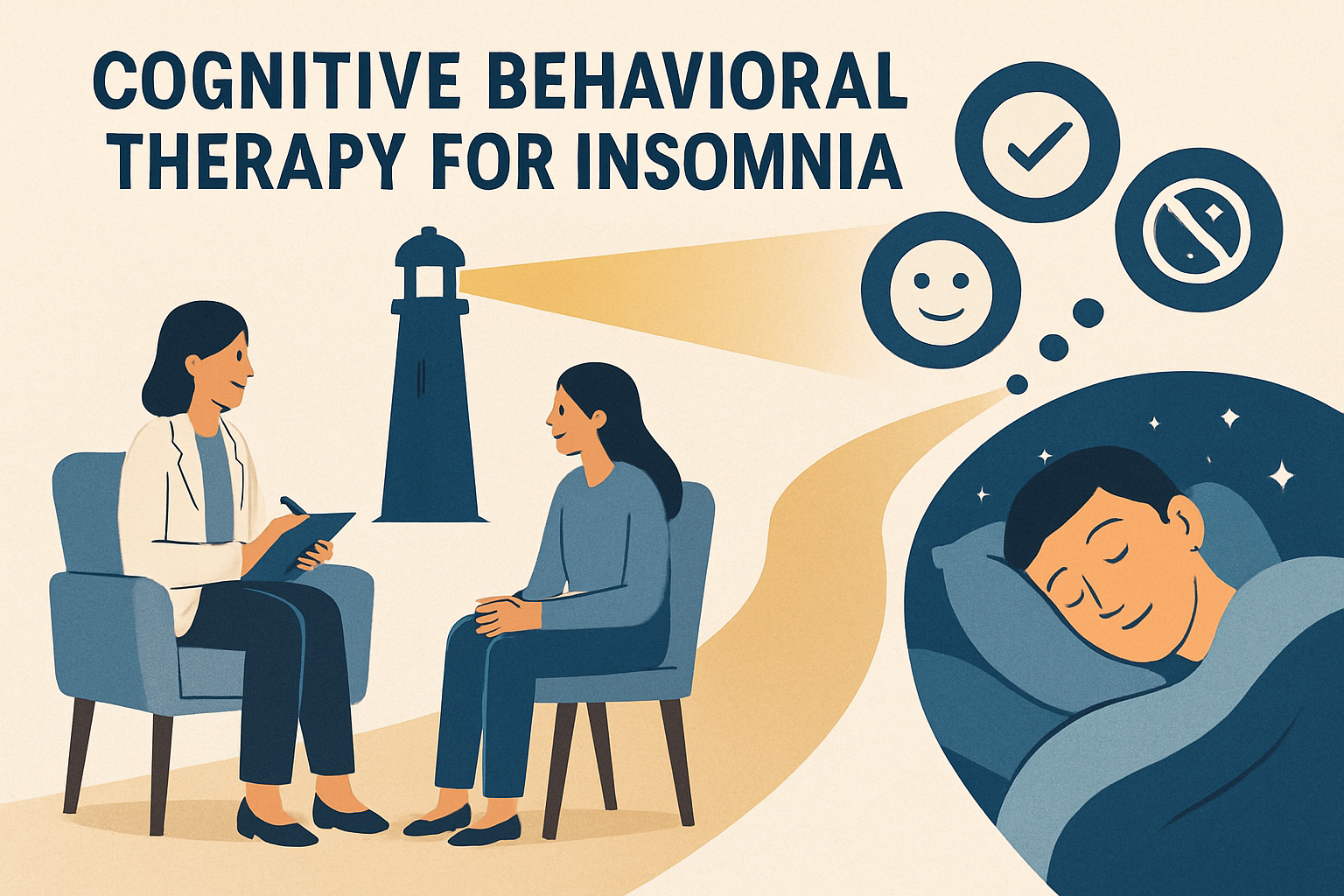
Medical Disclaimer: This article provides educational information about insomnia medications and side effects. Always consult with healthcare professionals for proper diagnosis and treatment of medical conditions.
When insomnia persists despite lifestyle changes and behavioral therapies, many individuals turn to medications as a potential solution. While sleep medications can provide temporary relief, they come with a complex array of benefits, risks, and side effects that every patient should understand before beginning treatment.
This comprehensive guide explores the various types of insomnia medications available, their mechanisms of action, potential side effects, and important considerations for safe and effective use. Understanding these factors is crucial for making informed decisions about your sleep health.
Types of Insomnia Medications
Insomnia medications fall into several categories, each with different mechanisms of action, effectiveness profiles, and safety considerations.
1. Benzodiazepines
Benzodiazepines are among the oldest and most widely prescribed sleep medications, though their use has declined in recent years due to concerns about dependence and side effects.
Common Benzodiazepines:
- Triazolam (Halcion): Short-acting, typically used for sleep onset insomnia
- Temazepam (Restoril): Intermediate-acting, helps with both sleep onset and maintenance
- Flurazepam (Dalmane): Long-acting, primarily for sleep maintenance
- Estazolam (ProSom): Intermediate-acting, used for various types of insomnia
2. Non-Benzodiazepine Hypnotics (Z-Drugs)

These newer medications were developed to provide the sleep-inducing benefits of benzodiazepines with fewer side effects and less potential for dependence.
Common Z-Drugs:
- Zolpidem (Ambien): Most commonly prescribed, helps with sleep onset
- Zaleplon (Sonata): Very short-acting, primarily for sleep onset
- Eszopiclone (Lunesta): Longer-acting, helps with both onset and maintenance
- Zopiclone (Imovane): Available in some countries, similar to eszopiclone
3. Melatonin Receptor Agonists
These medications work by targeting the body's natural sleep-wake cycle through melatonin receptors.
Available Options:
- Ramelteon (Rozerem): Targets melatonin receptors to promote natural sleep
- Tasimelteon (Hetlioz): Used for circadian rhythm disorders
4. Orexin Receptor Antagonists
These newer medications work by blocking orexin, a neurotransmitter that promotes wakefulness.
Available Options:
- Suvorexant (Belsomra): Blocks orexin to promote sleep
- Lemborexant (Dayvigo): Dual orexin receptor antagonist
5. Over-the-Counter (OTC) Sleep Aids

These are available without a prescription but should still be used with caution.
Common OTC Options:
- Diphenhydramine (Benadryl, Unisom): Antihistamine with sedating effects
- Doxylamine (Unisom SleepTabs): Another antihistamine used for sleep
- Melatonin Supplements: Natural hormone supplement
- Valerian Root: Herbal supplement with mild sedative properties
Common Side Effects of Sleep Medications
All sleep medications carry the risk of side effects, which can range from mild to severe and may impact daily functioning.
Daytime Drowsiness and Impaired Functioning
One of the most common side effects is residual drowsiness that persists into the next day.
Dependency and Withdrawal
Many sleep medications can lead to physical and psychological dependence, especially with long-term use.
Paradoxical Reactions
Some individuals experience unexpected reactions to sleep medications.
Paradoxical Effects:
- Increased anxiety or agitation
- Worsening of insomnia
- Nightmares or vivid dreams
- Sleepwalking or other complex behaviors
Drug Interactions
Sleep medications can interact with other medications, potentially causing serious complications.
Long-term Risks and Considerations
Extended use of sleep medications carries additional risks that become more significant over time.
Cognitive Decline
Some studies suggest a potential link between long-term use of certain sleep medications and cognitive decline.
Increased Fall Risk
Sleep medications can increase the risk of falls, especially in older adults.
Fall Risk Factors:
- Dizziness and balance problems
- Reduced muscle coordination
- Impaired judgment and reaction time
- Nighttime bathroom trips
Respiratory Depression
Some sleep medications can suppress breathing, which is particularly concerning for individuals with sleep apnea or other respiratory conditions.
Safer Alternatives and Complementary Approaches
Before considering medication, it's important to explore non-pharmacological approaches that can be equally or more effective.
Cognitive Behavioral Therapy for Insomnia (CBT-I)

CBT-I is considered the gold standard treatment for insomnia and has been shown to be more effective than medications for long-term improvement.
CBT-I Components:
- Sleep restriction therapy
- Stimulus control
- Cognitive restructuring
- Sleep hygiene education
- Relaxation techniques
Lifestyle Modifications
Simple changes to daily habits can significantly improve sleep quality.
Effective Lifestyle Changes:
- Regular exercise (but not close to bedtime)
- Consistent sleep schedule
- Optimized sleep environment
- Stress management techniques
- Limiting caffeine and alcohol
Natural Supplements
Some natural supplements may help with sleep without the risks associated with prescription medications.
Natural Options:
- Melatonin (for circadian rhythm issues)
- Valerian root
- Chamomile tea
- Lavender aromatherapy
- Magnesium supplements
When to Consider Medication
Medication may be appropriate in certain situations, but should be used judiciously and under medical supervision.
Appropriate Use Cases:
- Short-term insomnia (less than 4 weeks)
- Severe insomnia that significantly impacts daily functioning
- When non-pharmacological treatments have been tried and failed
- As part of a comprehensive treatment plan
- Under close medical supervision
Working with Your Healthcare Provider
If you're considering sleep medication, it's crucial to work closely with a healthcare provider who can guide you through the process safely.
Important Discussions:
- Complete medical history and current medications
- Underlying causes of insomnia
- Previous treatment attempts
- Risk factors and contraindications
- Monitoring and follow-up plans
Conclusion
While insomnia medications can provide temporary relief, they come with significant risks and side effects that must be carefully considered. The most effective approach to treating insomnia typically involves a combination of behavioral therapies, lifestyle modifications, and, when appropriate, short-term medication use under medical supervision.
By understanding the potential risks and benefits of sleep medications, you can make informed decisions about your treatment options and work with your healthcare provider to develop a comprehensive plan that addresses the root causes of your insomnia while minimizing potential harm.
← Back to Sleep Topics